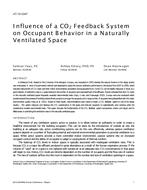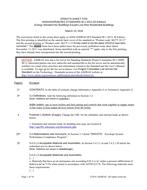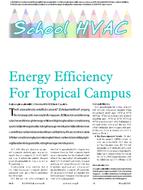Persistent monitoring of Indoor Air Quality (IAQ) within and around buildings and structures is critical to reduce risk of indoor health concerns. Specifically, IAQ issues in large integrated buildings may stem from inadequate ventilation and/or faults in the complex HVAC systems that together with control and communication systems can be considered as complex Cyber Physical Systems (CPSs). We propose a data-driven framework for monitoring distributed complex CPSs that reliably captures cyber and physical sub-system behaviors as well as their interaction characteristics. Using such learning methods, we aim to identify the anomalies and faults at an early stage such that necessary mitigation measures can be pursued in time. A fault in the HVAC system may be due to both physical and cyber anomalies affecting the operational goals of the building system. The proposed technique involves modeling of cyber and physical entities using probabilistic graphical models that capture individual characteristics of the sub-system and causal dependencies among different sub-systems. The proposed model can be trained using nominal historical data and then can be used to monitor the HVAC system and IAQ during regular operation. We validate our method with a case study on an integrated “zero-energy” (low energy/high performance) building, the Interlock House experimental test bed that is developed and maintained by the Center for Building Energy Research (CBER) at Iowa State.
Citation: ASHRAE and AIVC IAQ 2016 Conf
Product Details
- Published:
- 2016
- Number of Pages:
- 8
- Units of Measure:
- Dual
- File Size:
- 1 file , 2.1 MB
- Product Code(s):
- D-2016IAQ-22


